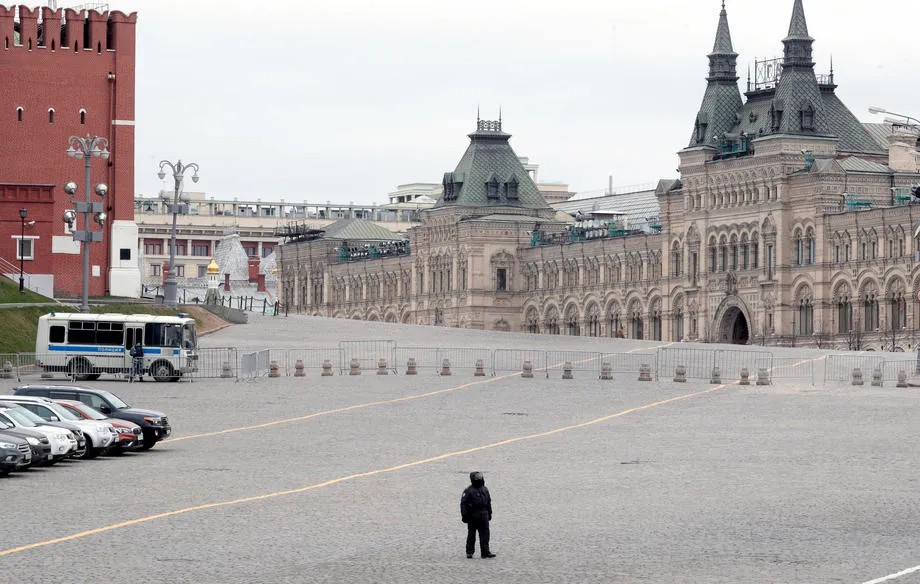
This Week’s Highlights
Putin rolls out the first stimulus package to battle the economic downturn following the oil wars and the COVID-19 outbreak; meanwhile, our correspondent struggles to get tested for the disease; robust international trade is possible even during a pandemic — Moscow and Beijing show how it’s done; plus, a Russian oil-producing giant dumping its assets in Venezuela proves that the Kremlin’s geopolitical alliances don’t always go hand in hand with economic benefits.
Want to get the full story? Click the links below for full-length articles in Russian.
New feature! Russia, Explained Audio Briefing. Also available on Apple Podcasts and Google Podcasts!
Putin’s Anti-Coronavirus Economic Plan, Explained
According to official data, Russia surpassed 2,700 confirmed cases of COVID-19 as of April 1 and reported 24 deaths. On March 25, President Vladimir Putin gave an emergency address to the nation regarding the pandemic, which mainly consisted of listing the economic measures that the government is taking to mitigate the crisis.
COVID-19 has other plans. “Pandemic era Putin is in sharp contrast with the president that Russians are used to seeing,” writes our politics editor Kirill Martynov. As he points out, the COVID-19 outbreak has interfered with the Kremlin’s plans to hold a nationwide vote on constitutional amendments on 22 April. And now it looks like the virus, rather than the authorities, will be calling the shots.
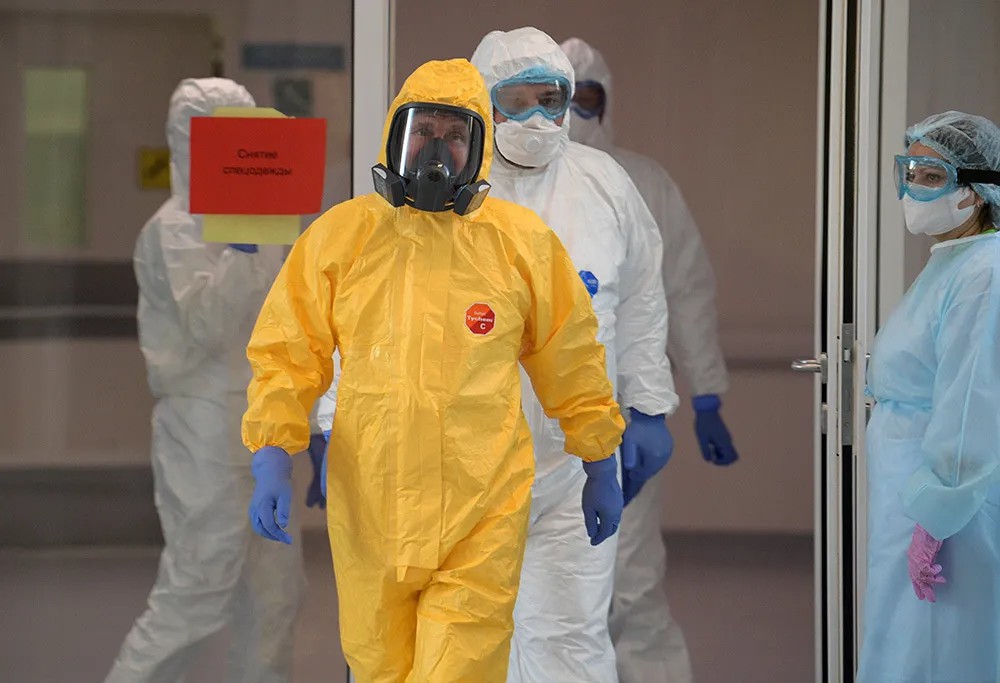
Potemkin democracy.During his address, Putin announced that the vote will be postponed indefinitely due to concerns about the spread of COVID-19. That said, the nationwide vote is ultimately a formality. “First and foremost, ‘nationwide approval’ is only needed in order for the authorities to boost their ego and to give what’s happening the appearance of a ‘democratic solution’,” Martynov emphasizes.
The “rich” get taxes.The raft of measures Putin announced includes a nationwide week off, as well as financial support for the unemployed, families with small children, and small and medium-sized businesses. To fund the anti-crisis package, he also enacted new tax levies targeting Russia’s wealthier citizens, including a 15% tax on dividend income paid into offshore accounts, as well as increased taxes on interest earned on deposits in Russian banks of over $1 million roubles ($12,900).
“Deposits of $1 million roubles can hardly be called a sign of particular wealth, but against the backdrop of the poor Russian population, living from one microloan to another, such ‘big bucks’ are a good reason to bring up the theme of social justice,” Martynov says.
Putin the virus to work. “It seems that in the Kremlin, even the coronavirus pandemic is being used as a tool to solve its political problems, nationalize the elites and established a new ‘Putin majority’ who are happy to realize that their poverty is supported by new taxes for the middle class,” Martynov concludes. “It’s difficult to assume that such measures will seriously affect the Kremlin’s closest friends, the heads of leading state corporations.”
Read Kirill Martynov’s full column on how COVID-19 is disrupting the Kremlin’s plans here.
Russia’s Coronavirus Chronicles, Continued
On 29 March, Moscow Mayor Sergey Sobyanin announced a self-isolation order for all citizens of Moscow, which effectivelyput the city of 12.5-million on lockdown starting the next day.
Downplaying the pandemic. Sobyanin’s announcement came after weeks of relatively lax public health measures to prevent community transmission of COVID-19 in the capital. In one of our most popular articles this week, columnist Yuliya Latynina emphasizes that the Russian government has mostly taken “cosmetic measures” and seems to be downplaying the severity of the outbreak. “This situation will not allow you to control the pandemic. But it does allow you to deny its existence,” Latynina warns. “No tests means no diagnoses. No diagnoses means no epidemic.”
“For the authorities, who do not value human life and do not depend on the voter, the coronavirus poses no danger,” Latynina says. “Our authorities are willing to kill the economy for the sake of their ideas about the world order, but are not prepared to kill it for the sake of the lives of their citizens.”
No test for you.Our correspondent’s experience trying to get tested for COVID-19speaks directly to Latynina’s claims. After coming down with a high fever and muscle aches last week, one of our reporters in Yekaterinburg spent several days calling around to various government departments seeking a coronavirus test. Eventually, he was told that he had to go register at a local clinic – so much for self-isolation.
“We don’t work with people.”Unfortunately, the bureaucratic runaround didn’t end there. The doctor at the clinic told our reporter that the national human wellbeing agency, Rospotrebnadzor, was the one administering the tests. He also recommended calling ahead. The response from Rospotrebnadzor? “We don’t work with people, we only work with clinics.”
Read Yuliya Latynina’s full column here and read more about our correspondent’s attempt to get tested for COVID-19 here.
Поддержите
нашу работу!
Нажимая кнопку «Стать соучастником»,
я принимаю условия и подтверждаю свое гражданство РФ
Если у вас есть вопросы, пишите [email protected] или звоните:
+7 (929) 612-03-68
The Future of Russia’s Trade with China, Explained
Trade relations between Russia and China have grown rapidly in recent years, reaching a record-breaking $108 billion in turnover in 2018. That said, the coronavirus pandemic has upended international trade. So to find out what’s happening between Russia and China now, we talked to Maxim Kuznetsov, the Vice President of the Russian-Asian Union of Industrialists and Entrepreneurs (RAUIE).
Russia’s exports are up. “As a matter of fact, only passenger flow has completely stopped,” Kuznetsov explains. “The flow of goods is moving and this has led to a unique situation: in the first two months of 2020 trade turnover between Russia and China grew 5.6%, to $17.6 billion.” According to Kuznetsov, Chinese imports to Russia decreased, but Russia’s exports to China went up by nearly 22%.
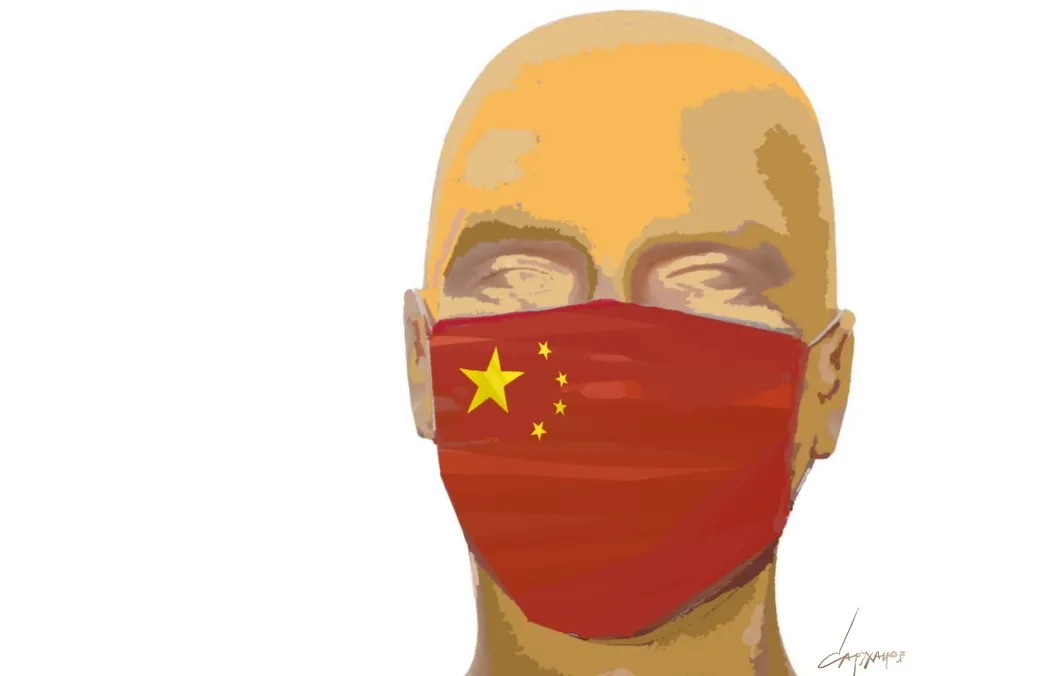
China’s exports are down.Meanwhile China’s trade with the rest of the world has fallen off and the country’s position has changed. “For the first time in a long time, China became a net importer in its trade with other countries, with a negative foreign trade balance of [over] $7 billion,” Kuznetsov says. Meanwhile, Russia’s numbers are still looking good. “Russia exports oil and China exports masks,” Kuznetsov says, putting it simply. “Volumes will grow.”
Read our full interview with RAUIE Vice President Maxim Kuznetsov here.
Rosneft’s Venezuela Deal, Explained
On March 28, reports emerged that Russia’s biggest oil company, Rosneft, was pulling out of Venezuela and selling off all of its assets linked to its operations there. The move comes amid a global collapse in oil prices, which have now fallen to around $20 per barrel.
Pulling a 180. Selling its assets is basically a complete reversal of Rosneft’s recent involvement in Venezuela. “Over the years of working with the Maduro regime, Rosneft, along with China, has virtually absorbed the Venezuelan oil sector,” explains our economics editor, Arnold Khachaturov. Amid a protracted economic crisis in the South American country, Rosneft has been scooping up assets ranging from stakes in major mining companies, to oilfield service operators and trading operations, for years.
All in the family.Now, the Kremlin is set to acquire these holdings in full. In exchange for the Venezuela package, the Russian government – which currently owns the controlling stake in Rosneft through its holding company, Rosneftgaz – is set to hand over a 9.6% stake of its shares. This is valued at an estimated 300 billion rubles (over $3.8 billion). The Venezuelan package itself will go to Rosneftgaz, or one of its subsidiaries.
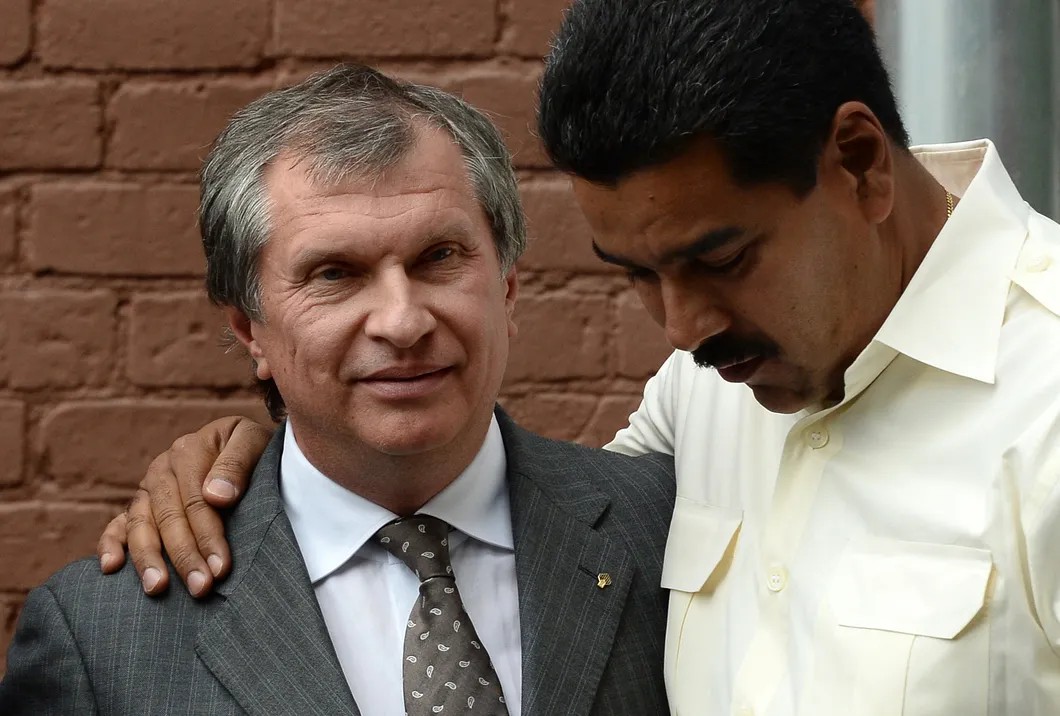
Sechin in the spotlight again.“The details of the transaction are classified. But everything we know about Rosneft’s activities in Venezuela leaves no doubt about their negative value,” Khachaturov says. The way he sees it, the main beneficiary of the deal will be Rosneft CEO Igor Sechin, who has grabbed headlines in recent weeks for spurring Russia’s exit from OPEC+, triggering the global collapse of oil prices.
Losing control.By giving up this 9.6% stake in Rosneft, the Russian government loses its controlling share. In other words, once the transaction is complete, Sechin’s Rosneft will formally be out of the government’s control.
So who owns Rosneft?“The chain of nominal Rosneft shareholders – Qatari funds, secret Chinese investors, Russian state banks, and so on, – has gotten so complicated that figuring out who owns the largest oil company in Russia will soon be basically impossible,” Khachaturov warns. “And this will be the main consequence of the Venezuelan deal with Rosneftgaz.” Meanwhile, Russia’s citizens are the ones actually paying for it. “At the end of the day, Russian taxpayers paying for the unprofitable investments of state-owned companies is nothing new,” Khachaturov concludes.
Read more Arnold Khachaturov’s full take on Rosneft’s Venezuela package here.
Other Top-Stories Russia Has Been Reading
- Oil sanctions?Aside from our COVID-19 coverage, the most-read article this week was about US President Donald Trump and the ongoing “oil war.” While Trump usually claims that low oil prices are “good for gas stations,” this time he criticized Russia for its “destructive” decision to leave OPEC+ and promised to “intervene.” These claims have fueled speculation that the US is preparing to introduce oil sanctions against Russia.
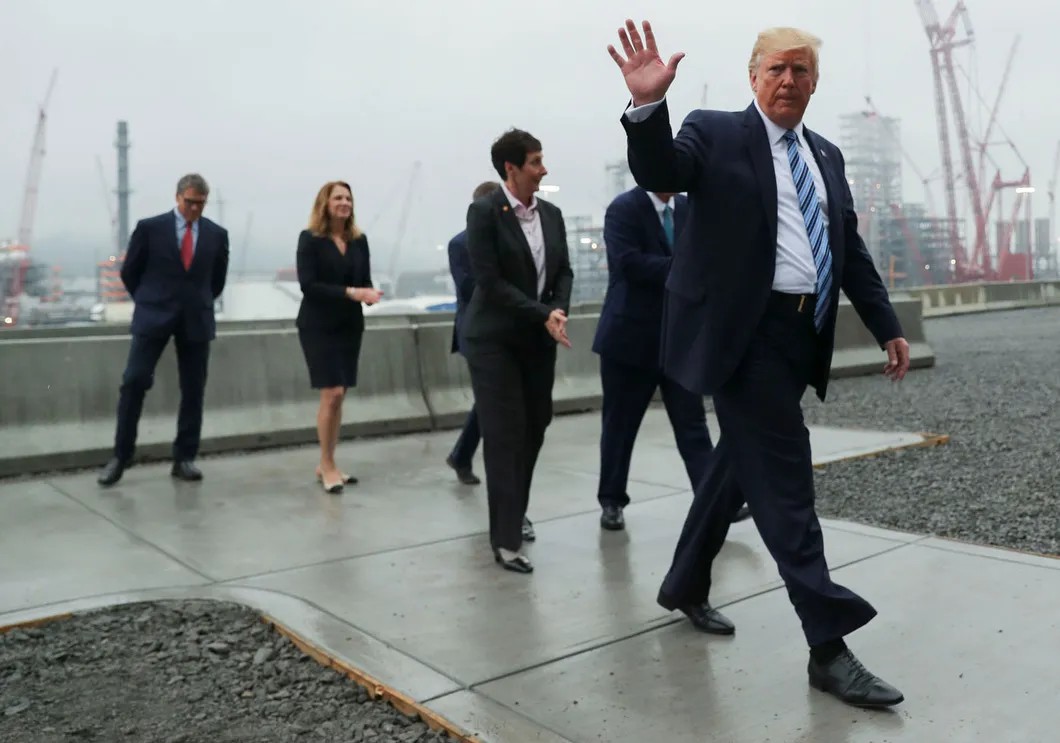
- Rumor has it.Following Putin’s address to the nation, rumors emerged that the Russian National Guard had stepped up patrols in Moscow. They were allegedly on the lookout for people over 65, who were defying orders to self-isolate. These stories snowballed on social media, as claims about military convoys in the capital, the detention of elderly citizens and the possibility of a state of emergency spread like wildfire. Our story debunking these rumors was one of our most-read articles this week. As it turns out, units from the Russian Guard were just carrying out standard patrols and the military convoys were on their way to a rehearsal for the upcoming Victory Day parade.
Thanks for reading! To keep up with Novaya Gazeta’s reporting throughout the week, you can follow us on Facebook, Twitter, Instagram and Telegram. Our video content is available on Youtube and don’t forget to visit our website for the latest stories in Russian. Until next time!
— The Novaya Gazeta Team
Поддержите
нашу работу!
Нажимая кнопку «Стать соучастником»,
я принимаю условия и подтверждаю свое гражданство РФ
Если у вас есть вопросы, пишите [email protected] или звоните:
+7 (929) 612-03-68